An Ambulance That Needs Help Itself: Qostanay Paramedics Struggle to Work in Freezing Conditions
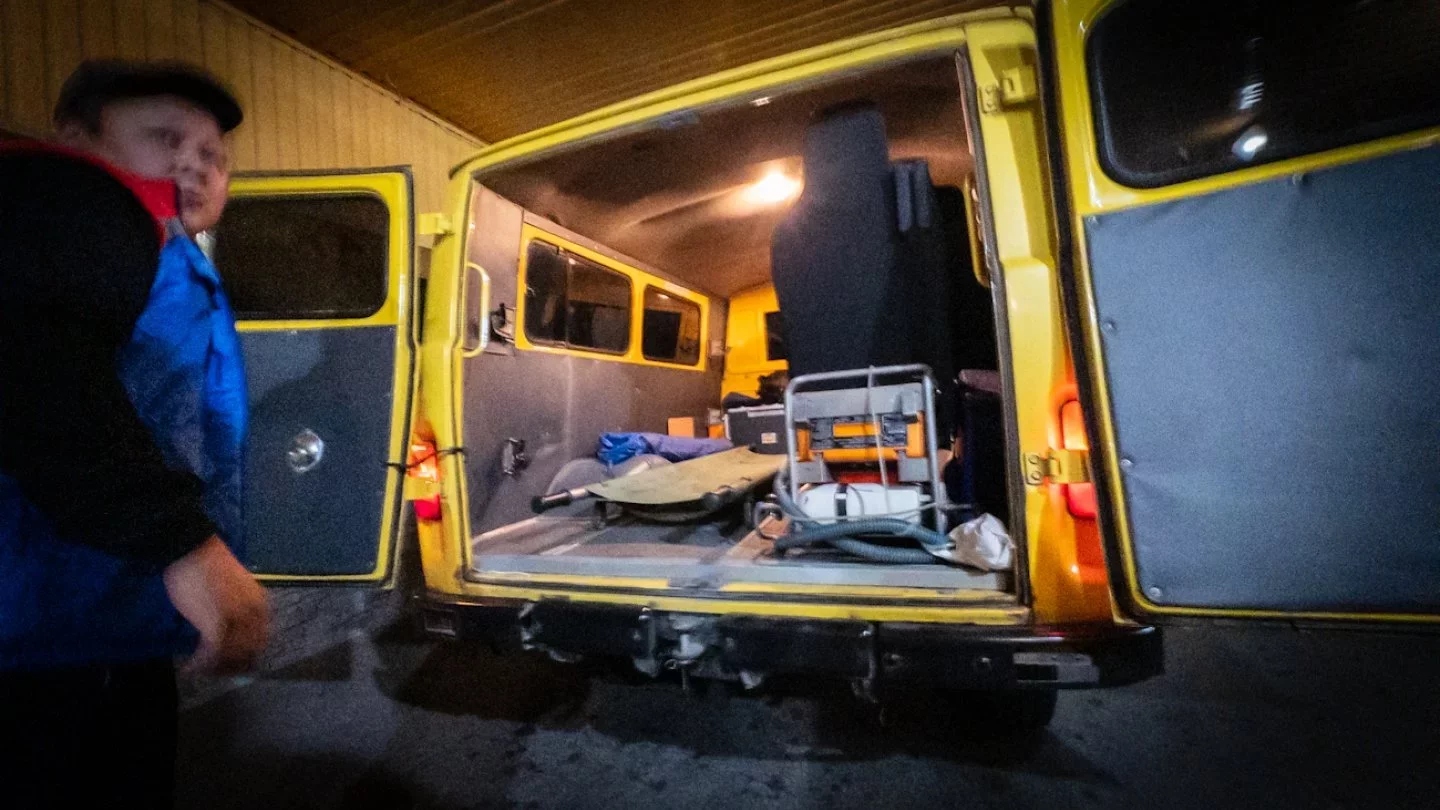 Photos by Turar Kazangapov
Photos by Turar Kazangapov
Every winter, freezing conditions make it difficult for ambulance crews in Qostanay to do their jobs. Inside the station, the rooms are cold, some medicines freeze, and staff often have to warm ampoules by hand before use.
To keep their vehicles from freezing, ambulances are left idling for hours — a practice that leads to frequent breakdowns and higher repair costs. Orda.kz looks into how Qostanay’s paramedics continue saving lives in such harsh conditions.
Oleg Meleshenko, acting head of the Qostanay Regional Ambulance Service, insists that no medication has frozen this winter, and says the station expects 50 new gasoline-powered vehicles by the end of the year.
For now, though, the fleet relies on old vans that run nonstop for months because there are no heated garages.
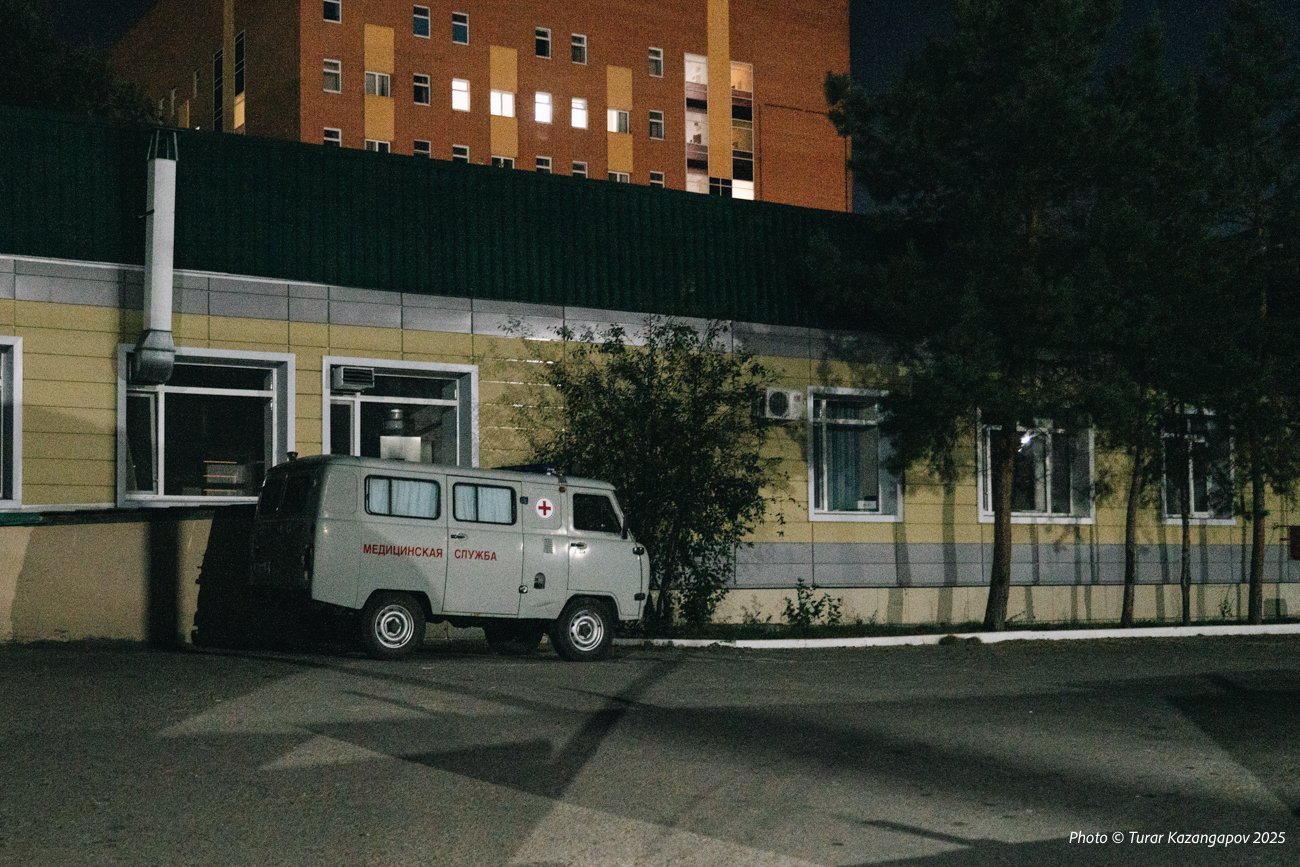
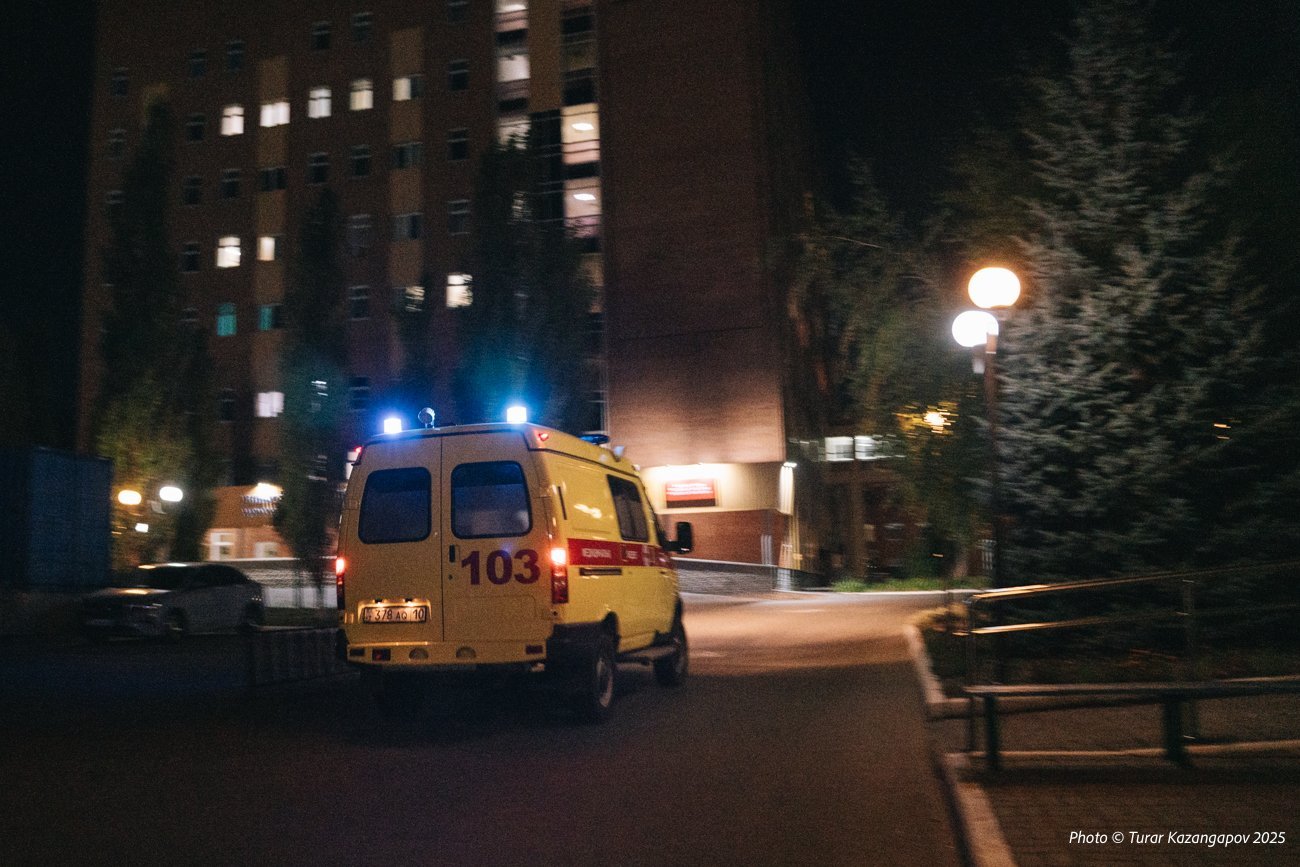
Oleg Meleshchenko took over as acting head of the Qostanay ambulance station on January 16, 2025, and immediately defined the limits of his responsibility.
I’ve been in charge since January 16 of this year, so I can answer for everything that’s happened since then. There haven’t been any cases of frozen ampoules or liquid solutions during this period. If someone claims otherwise, it might date back to 2020–2023, possibly involving former employees. The last time we received new vehicles was in 2020 — a batch of Chinese-made JACs. Since then, the fleet hasn’t been updated. My first goal was to change that, and I’ve managed to achieve it. he told Orda.kz.
Because there are no heated garages, the ambulances run on idle from October through March to prevent their engines from freezing.
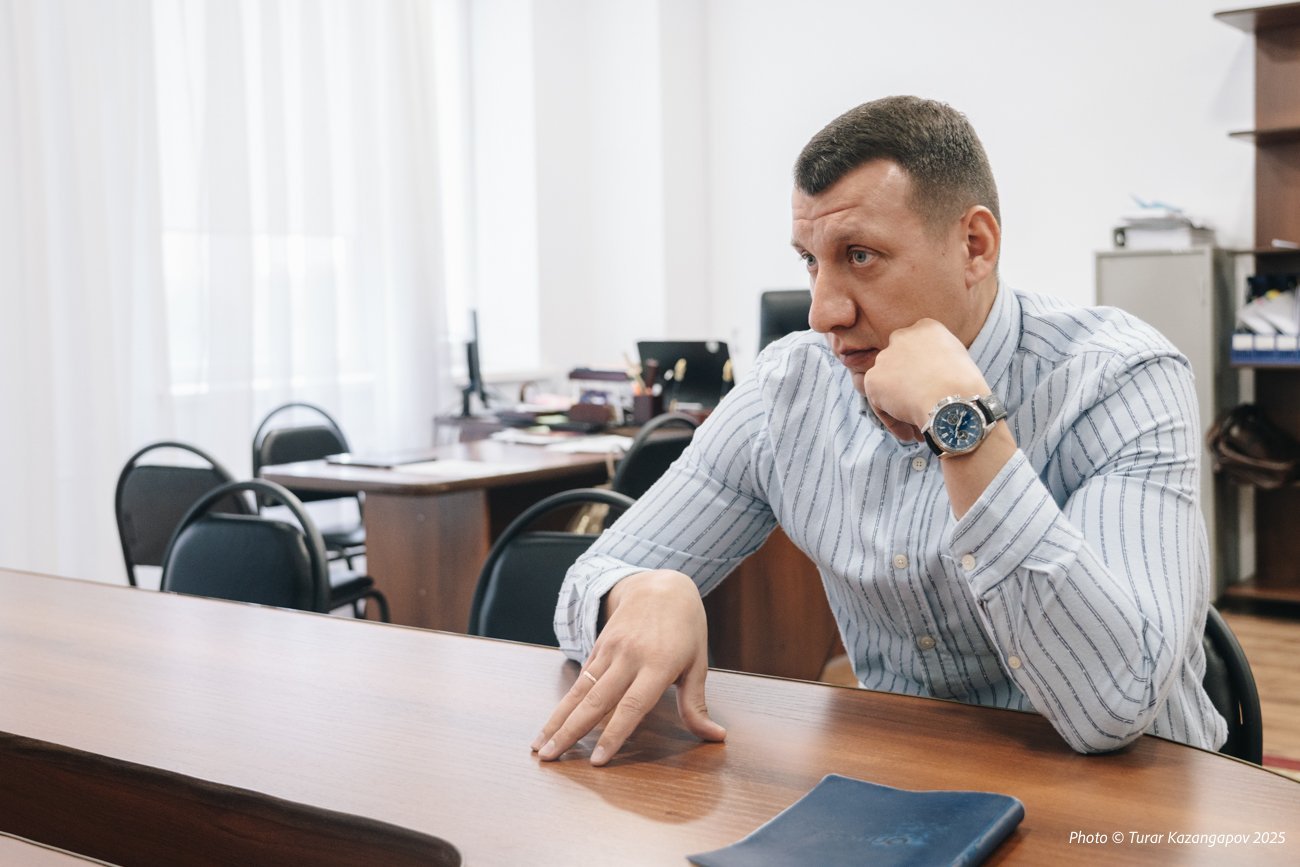
Historically, the building was never designed for this. There are no proper garage spaces — only four vehicles can park indoors, plus one in the repair bay. From October to March, we keep the engines running so the vehicles don’t freeze,
the doctor added.
The risks for paramedics don’t end with the cold — they also face danger on the job. Broken bones, fights, and threats have become part of their routine. And for all that, they earn very little.
Salaries haven’t increased, and there’s little sign that they will anytime soon.
We’re often sent not to a patient, but into a conflict. In those moments, you’re not thinking about medical protocol — you’re thinking about how to stay safe. People finish one exhausting shift and head straight into another: warming up their medical kits, thawing ampoules, trying to pull themselves together. said a paramedic with five years of experience
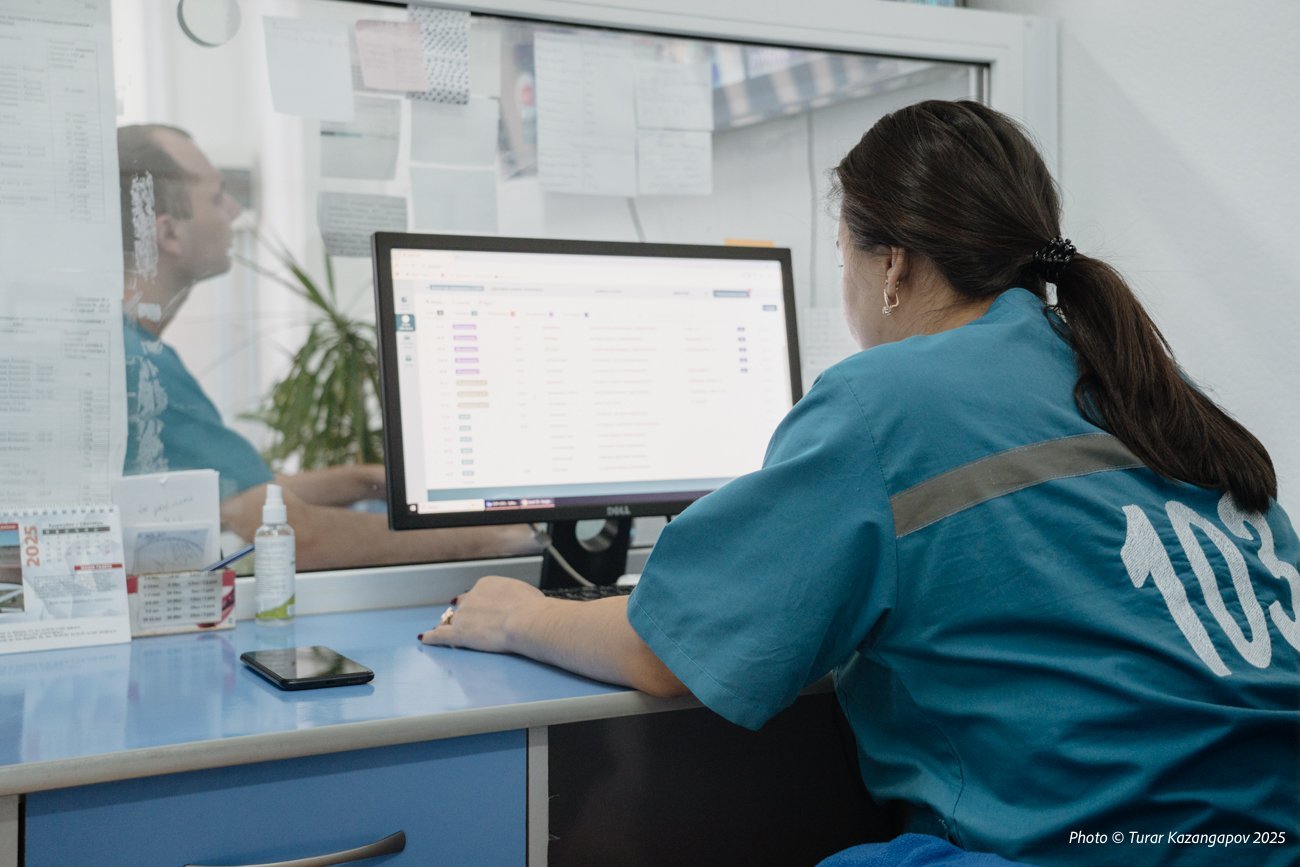
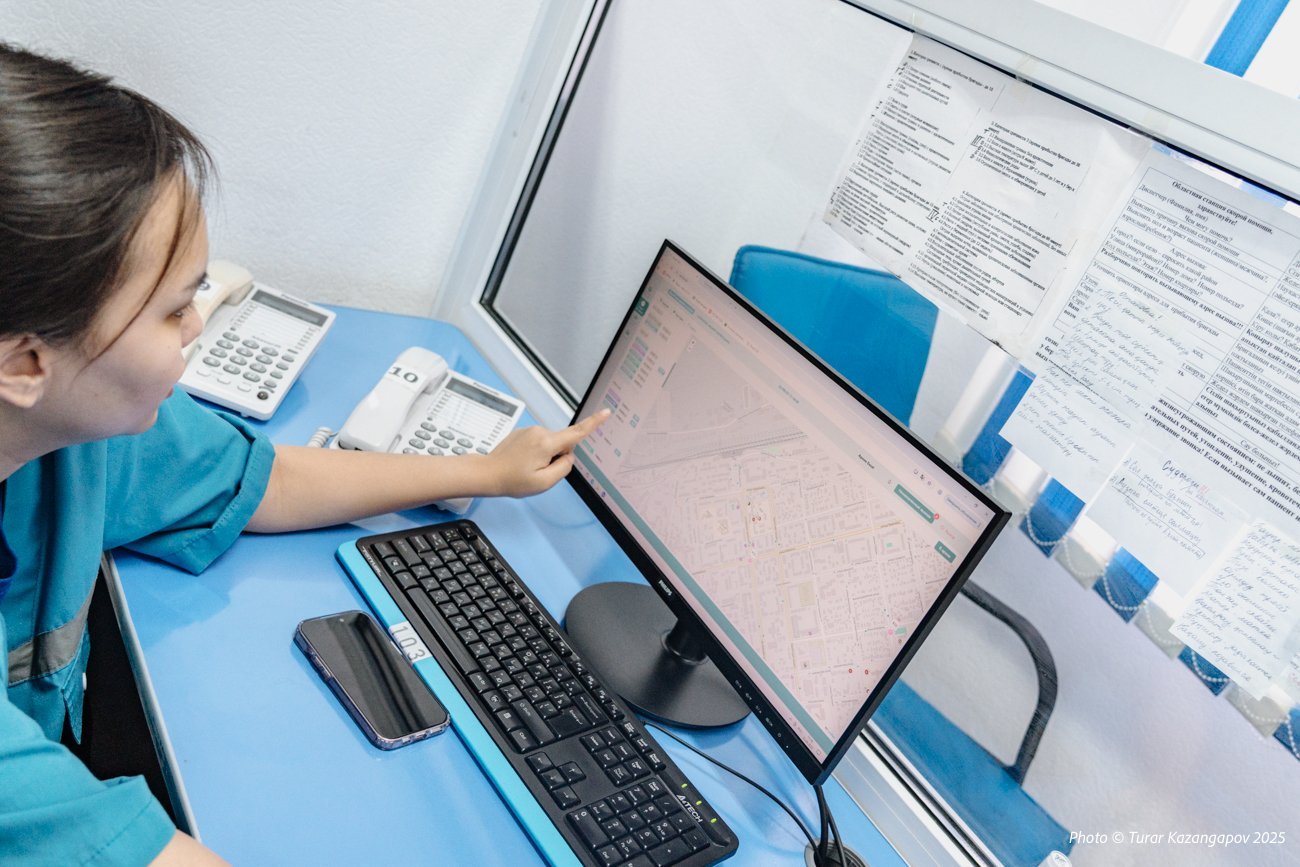
The ambulance fleet hasn’t been renewed since 2020, when the service received Chinese-made JAC vans and a few Korean models.
We’re expecting 50 new vehicles to arrive between late October and early November — all JAC models. They run on gasoline, since using diesel in our region doesn’t make sense — it’s more expensive and freezes in the cold. The average service life of an ambulance is no more than five years. It used to be seven under the old regulations, but that limit has now been reduced. Meleshenko said.
Some drivers told Orda.kz they’ve had to chip in for small repairs themselves — otherwise, the vehicles wouldn’t make it out on shift.
Meleshenko, however, insists that all parts and supplies are purchased centrally and that drivers are paid extra for repair work.
Spare parts, fluids, tools — all consumables are bought by the station. No one has ever asked drivers to pay for a light bulb, a turn signal, or an engine — and never will. Drivers are compensated only for the repairs. he explained.
Each ambulance has four assigned drivers, and when a vehicle breaks down, they handle the repair together.
According to Meleshenko, isolated cases where someone paid privately at a repair shop were personal choices, not policy.
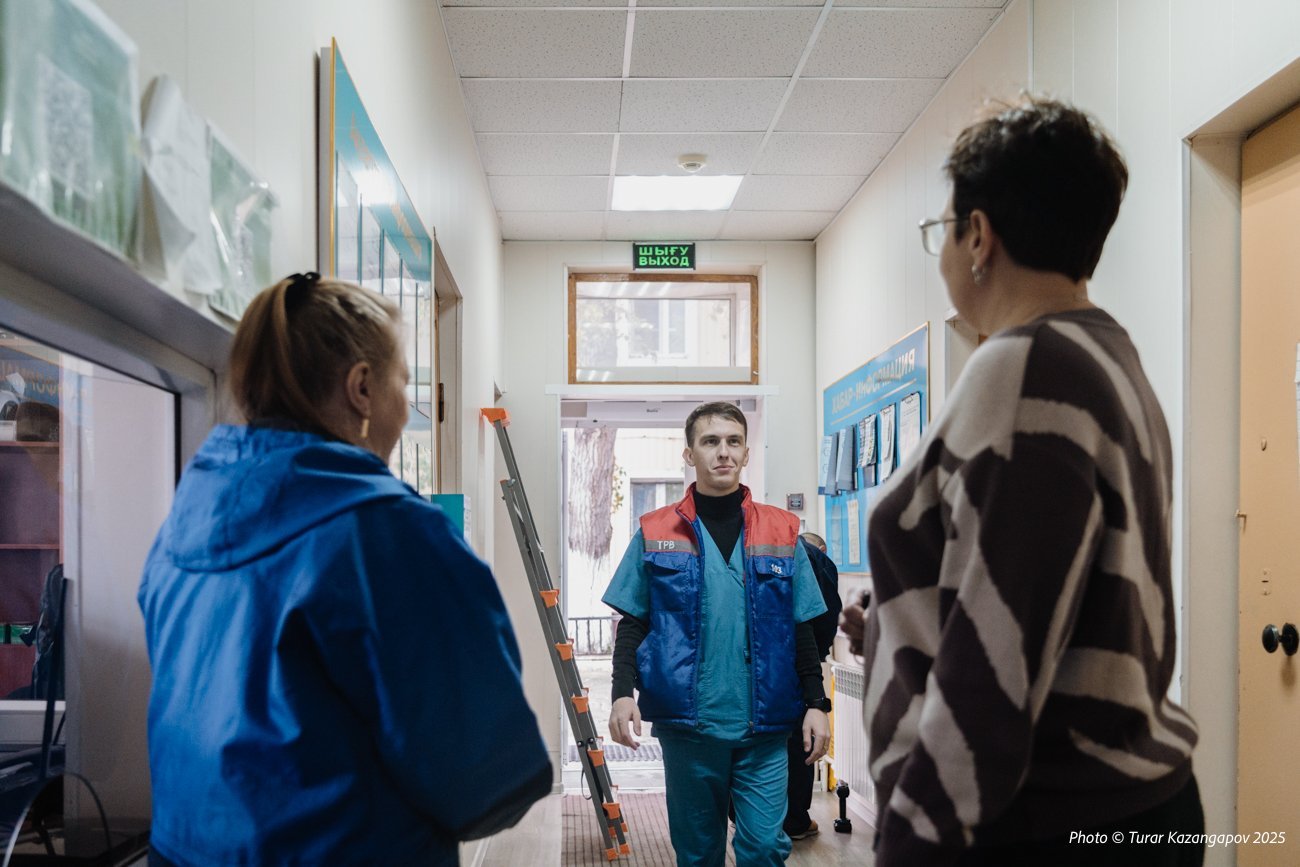
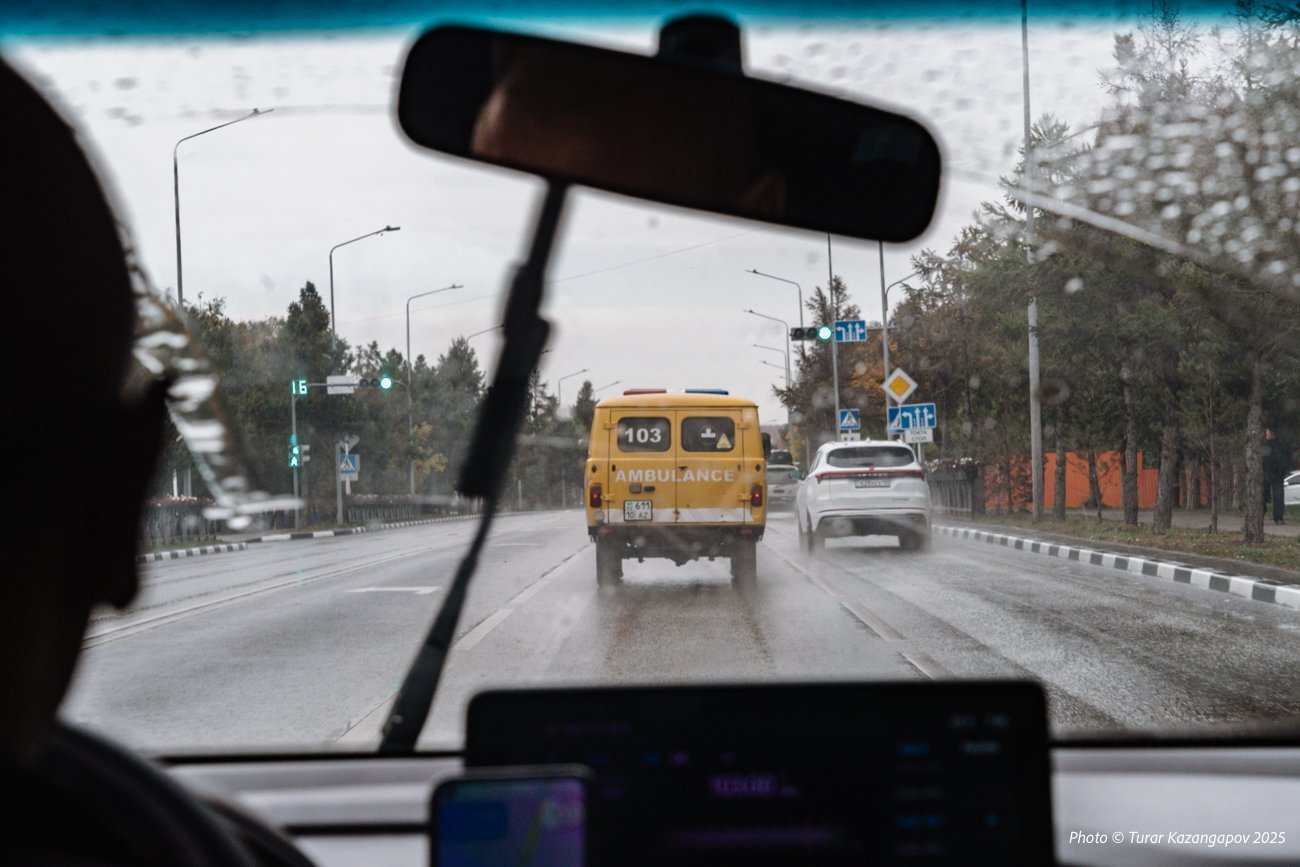
Over the past six months, Meleshenko said, five engines have already been replaced.
Previously, the regional authorities had for some reason purchased outdated UAZ vans to serve as ambulances — vehicles that are both physically and morally obsolete.
Still, he admitted, in some remote areas they’re the only ones that can make it through.
Buying UAZ vans for the city ambulance service no longer makes sense. They weren’t purchased by the station but by the regional administration, specifically for rural hospitals and first-aid posts. In winter, it’s hard to reach villages, and there are few alternatives: the Sobol is more expensive and less reliable. A new all-wheel-drive ambulance based on the T-2 platform is still under development., he explained.
The station expects 50 new ambulances by the end of the year, which should hit the road in January–February, after registration and insurance.
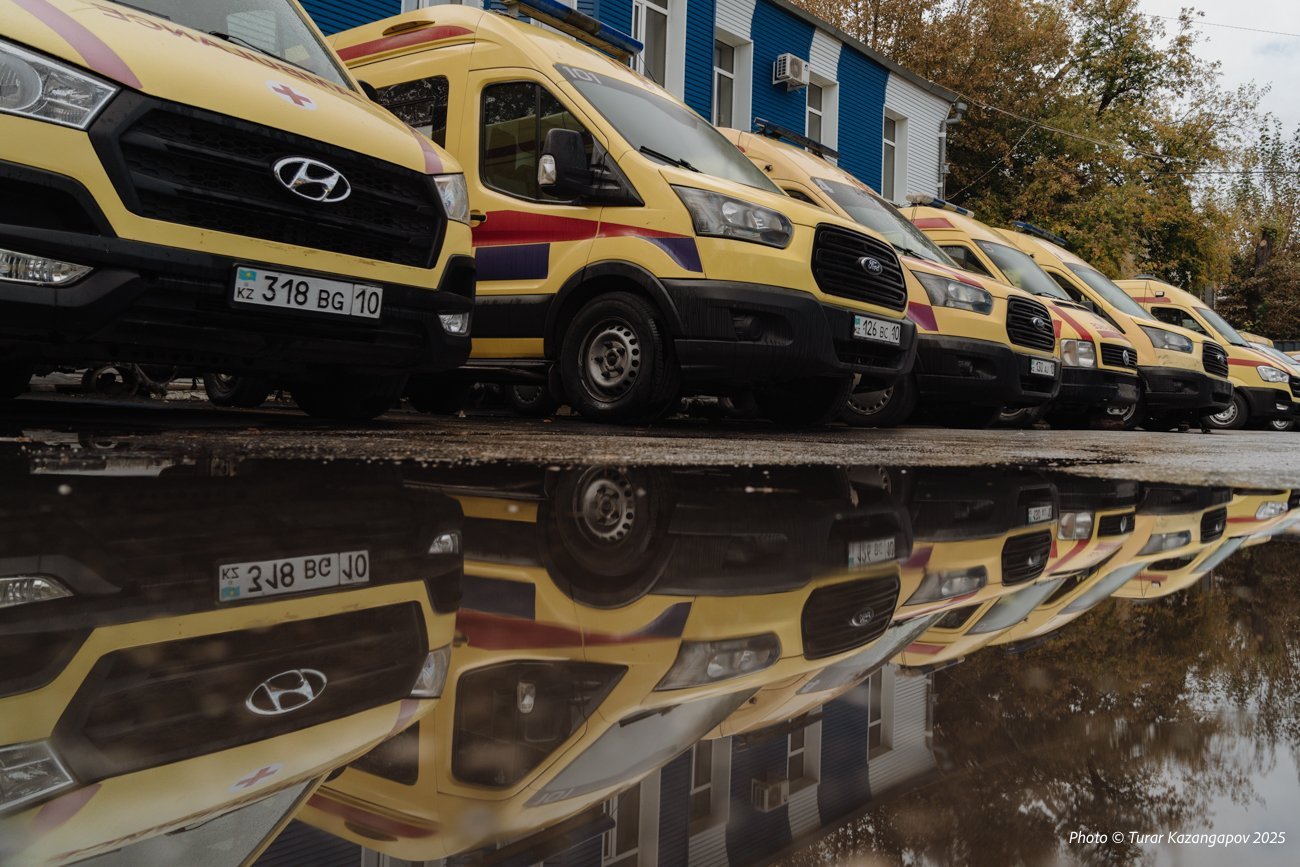
I believe all these issues will be resolved by January. In fact, the matter is practically settled already, and the staff are aware of it, the head of the station added.
But even with new vehicles, systemic issues remain. Without heated garages, the new fleet will continue to freeze and wear out.
Without fair pay for overtime, medics will keep juggling multiple jobs.
And without proper safety measures, paramedics will still face danger on every call.




I visited the SaryarkaAvtoProm plant. They’re still developing an ambulance based on an all-wheel-drive pickup. It’s supposed to be highly capable off-road, but the vehicle doesn’t exist yet. We can’t just take a price quote from them and place an order — though work in that direction is underway. Meleshenko added.
He noted that for rural emergency services, a large, fully equipped ambulance isn’t necessary — the priority is reaching the patient quickly and transporting them safely to the hospital.
Still, medics in Qostanay hope that new ambulances will be just the beginning — and that warm garages, decent pay, and safety on the job will follow.
Original Author: Ilya Astakhov
Latest news
- Damaged Baikonur Launch Pad Facility Restored After 2025 Collapse
- A Rare Black Melanist Wolf Was Shot in Eastern Kazakhstan
- Kazakhstan Maintains Neutral Stance on Middle East Escalation
- Kazakh MFA: Citizens Evacuated from the Middle East via Oman and Saudi Arabia
- Kazakhstan to Spend 4.6 Trillion Tenge on Road Projects Through 2029
- Central Asia Competes for the Skies: Why Kazakhstan Risks Falling Behind Uzbekistan on Jet Fuel
- The War in Iran Opens a Window of Opportunity for Kazakhstan’s Oil Sector, Analysts Say
- Iran Conflict Escalates Beyond the Gulf: What Kazakh Experts Say About Risks for Central Asia and Kazakhstan
- Kazakhstan Prepares Possible Evacuation of Its Citizens From Iran
- LRT in Astana Is Reaching the Finish Line: The Launch Is Expected in the Coming Months
- Kazakhstan Ready to Help the UAE Amid Escalation in the Region
- Tokayev Discusses Middle East Escalation With Qatar’s Emir
- Airlines Ready to Bring Kazakhstanis Home From the Middle East
- Tokayev Sends Support Messages to Gulf Leaders Amid Regional Escalation
- Kazakhstan Bans Its Airlines From Flying Over Several Middle East Countries
- Astana Strengthens Security Measures Amid Escalation Around Iran
- Tokayev Meets U.S. Ambassador Stufft, Discusses Board of Peace Cooperation
- Mangystau Launches AI-Assisted School Monitoring to Prevent Teen Suicidal Behavior
- Kazakhstan to Supply UK With Critical Minerals
- AI Faculties for Educators to Open in Kazakhstan: What Other Changes Are Coming to the Education Sector

